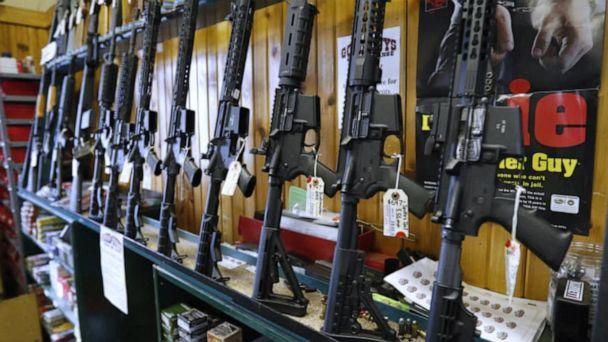It’s too early to suggest that the El Paso and Dayton mass shootings will change the debate on guns or anything else, but one can hope. On Monday, President Trump surprised many by condemning white supremacy. Various leaders, led by politicians but also athletes, entertainers, and businessmen, are speaking out. The media is devoting entire programs to the issue of gun violence and the need for action. I’m encouraged.
Dozens of pundits have commented that it takes a crisis to bring a community together. The implication is that without a crisis, a community may be unable to form the type of consensus necessary to act. Skillful politicians know when a crisis has occurred and how to exploit it. Memorably, Rahm Emanuel, President Obama’s chief of staff, commented that, “You never let a serious crisis go to waste. And what I mean by that it’s an opportunity to do things you think you could not do before.” Emanuel is right. Obama used the Great Recession to enact Obamacare. But only the next few weeks will tell whether the recent mass murders and the universal expectation that more will follow is enough of a crisis to build a national consensus to do something about gun violence. Hopefully it is.
For the time being, hundreds of thousands of people are demanding that something be done to end the epidemic of mass shootings. The ideas are familiar to many of us: Expanded background checks, banning certain weapons, taking guns away from the documented mentally ill, registering guns, and things like requiring gun owners to maintain liability insurance to pay for the harm their gun might do. It can, of course, be questioned whether any or all these actions would prevent the next mass shooting, but it would be a start. Whether the political will exists for those in the community who fear gun legislation to change their views is another question. Historically, calls for action after a shooting are loud but short-lived. After the shock of seeing pictures of murdered victims, especially children, things seem to go back to normal.
Will this time be different? Hopefully it will, but it won’t happen automatically. Legislators need to hear from enough constituents to become convinced that their jobs are in jeopardy if they “vote wrong.” Legislators themselves need to demonstrate political courage by addressing those who are skeptical about new gun laws. Trusted legislators telling hunters and other gun owners that banning assault weapons and making it harder to buy a gun is not a forerunner to seizure of all guns will help a consensus to emerge. It can be done.
The drafting of legislation that gives us the best chance of reducing gun violence won’t be written if Democrats focus too much on blaming President Trump and racists for the most recent tragedies. Progress requires civil discourse. Can Republicans and Democrats set aside the name calling and focus on find the common ground? It’s out there. It may not be everyone’s first choice for a solution, but it also may be our best shot at getting something done.
J.E. Dean of Oxford is a retired attorney and public affairs consultant. He is a former counsel to the House Committee on Education and Labor. For more than 30 years, he advised clients on federal education and social service policy. He is the former chairman of the National College Access Network (NCAN), a group promoting success in higher education among underrepresented groups, and KnowledgeWorks Foundation, a national leader in strategic foresight and education innovation.



Gren Whitman says
Suggestions for starters:
(1) Background checks for all firearms purchases;
(2) A complete ban on military-style weapons;
(3) A complete ban on large magazines;
(4) Licensing, training, and insurance — like we all accept for car ownership — for gun ownership; and
(5) A national “red-flag” law.
John Dean says
Agreed. Good suggestions.